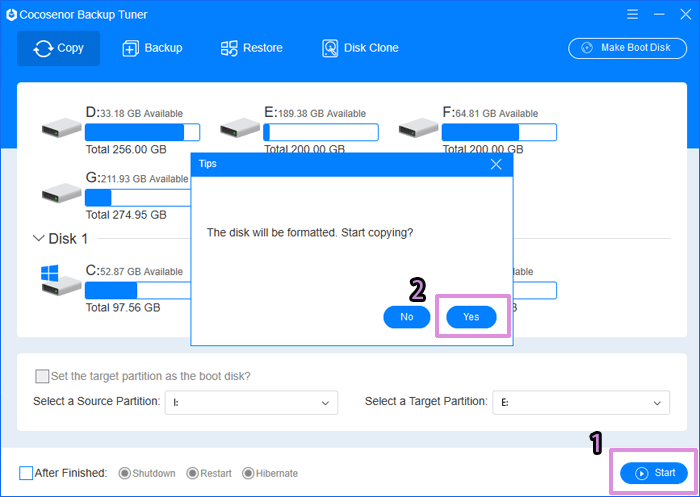

While it’s hardly an overheating basket case of an SSD, this drive obviously has no cooling to speak of. In our testing, the P5 Plus hit 69☌, which is fairly toasty. However, there was also a temporary blip after 200GB/s which may have been thermal throttling. During our internal file copy test, we found performance dropped off after around 300GB of writes, which probably reflects the size of the dynamically allocated SLC cache.

If there is a more substantial question mark, it concerns the related topics of long-term sustained performance and thermals. On the other hand, the P5 Plus didn’t exactly excel in the Final Fantasy XIV: Shadowbringers level load test.

In PC Mark, the Crucial P5 Plus nets 3,140 points in the Full Storage Index, which is one of the very best performances we’ve seen. Of course, synthetics like that only tell part of the story. But by way of example, WD’s Black SN850 returns around 90MB/s and 315MB/s, respectively, and every other PCIe 4.0 drive we’ve tested is at least a little quicker. The QD1 reads are a mere 69MB/s and the writes come in at 174MB/s. Slightly less invigorating are the short queue depth 4K random numbers. Software-wise, along with Crucial’s own drive-management app, Acronis Cloning is also included, which is handy if you’re transitioning an existing OS onto a new drive.Īs for the minor matter of how this drive actually performs, it’s definitely good for the claimed peak sequentials, with writes absolutely dead on the 5,000MB/s figure in CrystalDiskMark and reads slightly higher at over 6,800MB/s.

Crucial backs the drive with a five-year warranty, which again will cover the likely use case for most installations. Rounding out the relevant speeds and feeds is write endurance for this 1TB model of 600TB, which should be plenty for all but the most demanding users. For context, the Samsung 980 Pro is good for one million IOPS in both directions while the WD Black SN850 will do one million read IOPS and 710,000 write IOPS. The 1TB P5 Plus is rated at 630,000 read IOPS and 700,000 write IOPS. But we’re still talking about GB/s of theoretical bandwidth.Ĭrucial’s claims for random access performance are again adequate but not quite class-leading. On paper, that’s a little off the pace of the very quickest PCIe Gen 4 drives, including the Sabrent Rocket 4 Plus and Adata XPG Gammix S70. All told, Crucial says the 1TB P5 Plus is good for 6,600MB/s peak reads and 5,000MB/s writes. Other features supported by the revised controller are hardware-based AES 256-bit encryption and the obligatory SLC cache mode, allowing a portion of the drive to be dynamically allocated to run in faster single-level-cell mode.


 0 kommentar(er)
0 kommentar(er)
